
This post was previously hosted on www.mikeeschmee.com in November 2019. The below has been reviewed and updated in October 2023.
The full SEO For The Left Series:
- SEO For The Left: The Case For
- SEO For The Left: Content
- SEO For The Left: Onsite
- SEO For The Left: Backlinks
In my SEO For The Left post I made the case for the left caring about SEO to spread our message. So you care now, how do you make sure your message shows up in the search results? There are a lot of things to consider but most important, and first: Have the content.
Write it yourself. Pay someone else to. Will it into existence. Or do what I do: think about it for months, outlining it in detail in your head, and then lack the ability to actually put it down with any coherence.
But what content? Good question, would be a shame if someone answered it for you…
You want to answer the questions people ask a search engine or things they are looking to learn more about.
- These can be actual questions: “what does a union do” “what is socialism”
- Or single words: “bitcoin” “oat milk”
- Or can also be breaking news: “trump indicment” “hurricane [name]”
- Or even days (real or fake): “may day” “international men’s day”
Even if not framed as a proper question the user is saying “I want to know more about this” or “I want to see why this is in the news”. The content itself should answer these questions more broadly, but also directly. There should even be the actual question in the headline or in a header of the content body.
These questions or content topics can be found with anecdotal evidence, through outside sources, or by using online tools. I’ll go over three different online tools you can use to find content and how to refine the content: Google Search Results, Answer The Public, and Google Ads Keyword Planner.
How to use Google Search results to find specific content to write:
When you search in Google oftentimes there will be additional questions that people asked related to that topic. For instance, when I search “what is socialism” these additional questions show up:
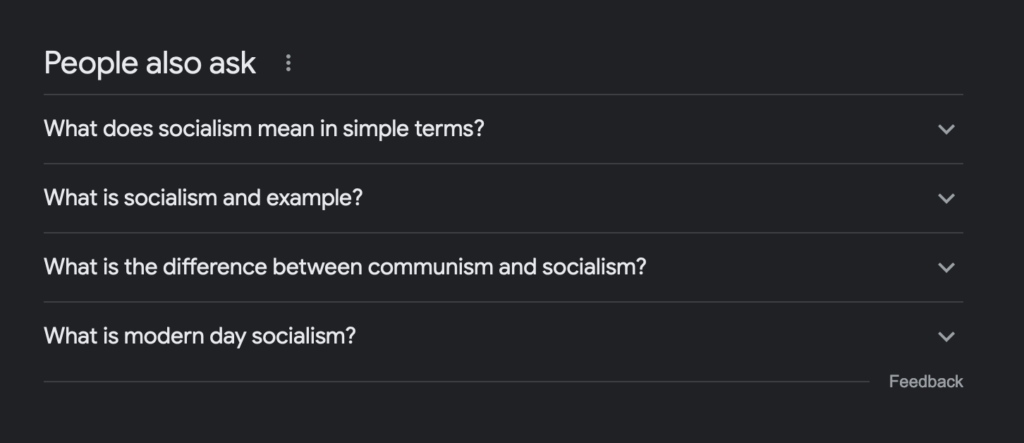
Writing content answering those specific questions can ultimately result in your content showing up there. When you click on these questions it opens up a snippet from the site with the answer and is linked to the site. (It also adds additional related questions, which can give you even more ideas of questions to answer.)
(I’m only focusing on the question drop downs, but some searches have an actual snippet at the very top that attempts to answer the question. To see examples and more on getting included in those, see this blog by Neil Patel: https://neilpatel.com/blog/how-to-get-your-content-in-the-google-serps-featured-snippet/)
How to use Answer The Public to find questions to answer surrounding a specific topic:
Another great resource for finding questions to answer about a specific topic, that people have actually searched before is Answer The Public.
Put the topic in the search and you’ll get a visualization of all the different questions that people have asked using that word/topic. The visualization is a little difficult to read, but you can view as data (pic below) and even export to a .csv.
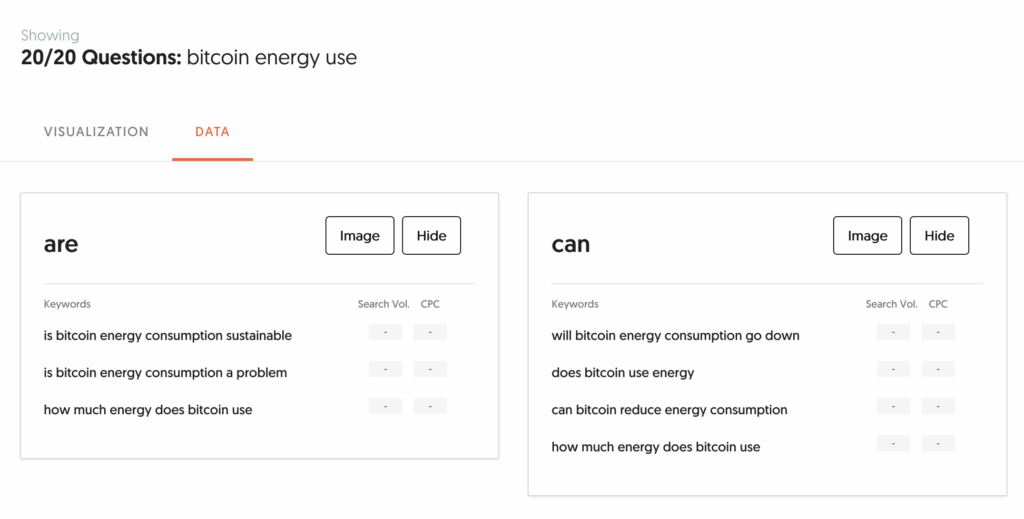
How to use Google Ads Keyword Planner to refine phrasing used and find similar phrases:
With a Google Account you can access Google Ads and the Keyword Planner. The Keyword Planner is meant to be used to plan out ad campaigns, but works for some basic search research. It will give rough estimated total searches for specific words or broad topics . It can help choose specific phrasing to reach the most people and what topics to put your likely limited resources behind.
Here is a write up with specifics of how to use this for this purpose: https://www.quicksprout.com/how-to-use-google-keyword-planning-tool/
Pay some attention to the competition column, but that is specifically about how many people are purchasing ads for those keywords. The best way to see actual competition, and thus the likelihood you’d show up on the first page of the search results (majority of clicks happen on the top listing, and vast majority on first page) is to search the exact phrase with quotes “” on google and see the total results:
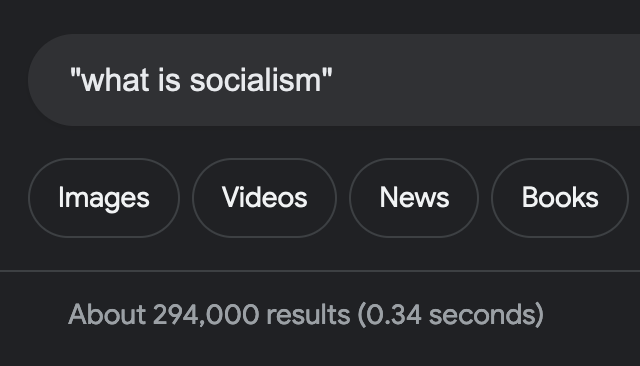
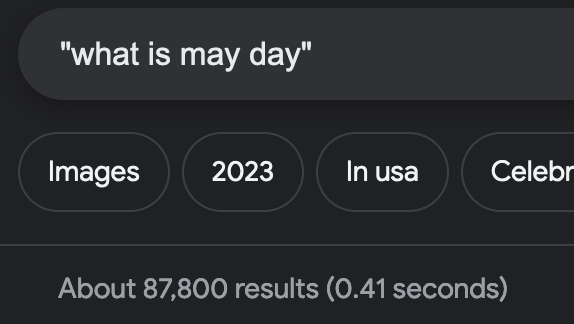
There is a lot less content out there for “what is may day” but also significantly less searches per month, compared to “what is socialism”. Finding content that is high in searches but low in search results is more likely worth the resources to write about.
These three online tools should give you guidance on how to phrase the content you have and where to focus some of your efforts on additional content to reach the most people possible.
For some additional tools on finding content that would reach people and how to phrase it check out these sources:
- Also linked above, here is a How To Use Guide for Google Keyword Planner for SEO purposes: https://www.quicksprout.com/how-to-use-google-keyword-planning-tool/
- How to get your site used as snippets on Google search results: https://neilpatel.com/blog/how-to-get-your-content-in-the-google-serps-featured-snippet/
- The Keyword Research section from The Moz SEO Beginner’s Guide: https://moz.com/beginners-guide-to-seo/keyword-research
The full SEO For The Left Series:
- SEO For The Left: The Case For
- SEO For The Left: Content
- SEO For The Left: Onsite
- SEO For The Left: Backlinks





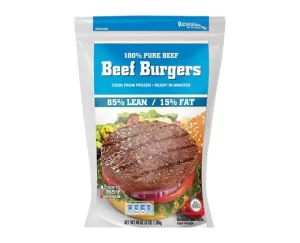

2 thoughts on “SEO For The Left: Content”
Comments are closed.